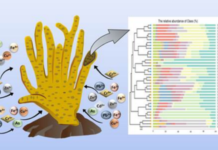NEW DELHI– A team of Israeli researchers has uncovered how the hormone oxytocin helps shape emotional development in early life, revealing a brain mechanism that influences how young mammals respond to parental separation.
Scientists at the Weizmann Institute of Science developed a noninvasive method to silence specific brain cells in mouse pups without disrupting their natural behavior. Using this approach, they discovered that oxytocin activity plays a crucial role in how the pups adapt when separated from their mothers.
Often referred to as the “love hormone” for its role in social bonding, oxytocin has been extensively studied in adults. This research, published in Science, highlights its significance in young animals as well.
The study found that mouse pups with an active oxytocin system adjusted more quickly to temporary separation, crying less than those with inactive oxytocin systems. After reuniting with their mothers, the pups with active oxytocin also displayed distinct vocal patterns that conveyed a need for closeness, followed by calmness.
Researchers observed early sex-based differences too: female pups were more strongly affected by oxytocin activity changes, suggesting that emotional development may diverge between males and females earlier than previously understood.
The findings provide new insight into how early experiences and brain chemistry influence long-term emotional and social behavior. The team believes the work could guide future studies on developmental conditions such as autism, where bonding and social pathways may function differently. (Source: IANS)














